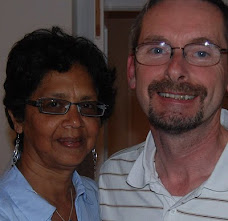But really, it’s worth it. As long as we don't become too big as an organisation and not too far apart, it makes a lot of sense to bring the whole community together for a few days of prayer and reflection (and fun too!). And sitting there, in the sort of hotel that you couldn’t normally afford to book into, gives one an extra sense of the value God places on your life and on what you are doing. Yes, it is all worth it. And three hundred and thirty five people (including about 100 children) all committed to making a difference for God in Europe and gathered together for that purpose makes for an amazing experience .
Thursday 26 April 2012
Biennial
But really, it’s worth it. As long as we don't become too big as an organisation and not too far apart, it makes a lot of sense to bring the whole community together for a few days of prayer and reflection (and fun too!). And sitting there, in the sort of hotel that you couldn’t normally afford to book into, gives one an extra sense of the value God places on your life and on what you are doing. Yes, it is all worth it. And three hundred and thirty five people (including about 100 children) all committed to making a difference for God in Europe and gathered together for that purpose makes for an amazing experience .
Wednesday 25 April 2012
A Dividadura
In many ways there’s a new sort of dictatorship that seems to ruling the country, and it’s a dictatorship from outside, not from within, a dictatorship of the impersonal forces of the financial institutions and the markets of western Europe. That dictates what I can earn, what I need to pay in taxes, and what are my chances of having a job next year, and being able to put bread on the table. I have heard more than one person in recent weeks describe their own personal situation as a form of slavery - working long hours for meagre returns, or in some cases, no work at all, and still the bills to pay.
Friday 6 April 2012
The Empty Cross
 This Good Friday, as I reflect on the hours Jesus suffered on his cross, the thing that impresses me most is that, yes, He did suffer, but that it ended. By the end of the day, it was over. Out of the darkness, he could cry out “It is finished!”, and “Into Thy hands I commend my Spirit!” And Good Friday is followed by Easter Sunday and the promise of His Rising again and the victory over sin and death and evil
This Good Friday, as I reflect on the hours Jesus suffered on his cross, the thing that impresses me most is that, yes, He did suffer, but that it ended. By the end of the day, it was over. Out of the darkness, he could cry out “It is finished!”, and “Into Thy hands I commend my Spirit!” And Good Friday is followed by Easter Sunday and the promise of His Rising again and the victory over sin and death and evil Hailstones fell this morning - tempestuous clouds were scurrying across the sky, and there was a serious drop in temperature. Thunder was rumbling, and in the middle of all this, this most amazing rainbow was shining above the apartment blocks of Portela. A reminder of God’s eternal faithfulness to his word. 
“Were heaven's praises silent in those hours of darkness?
Your Holy Spirit brooding round that empty throne?
Until the declaration "He is Risen", You are risen, Jesus,
"He is not dead, behold He lives for evermore".
(Robin Mark - Wonder of your cross)
We listened recently to an audio podcast from Mosaic church, in which Erwin McManus, in a series called “The Truth Between Us” sought to explore the Christian faith against a variety of other religious perspectives. On Catholicism, McManus, himself born into a hispanic Catholic tradition, describes vividly his first experience of entering a evangelical church and being confronted with an empty cross, and the deep shock he felt that - “my goodness, they’ve forgotten Jesus!” Anna related to that immediately. It took her back to the first time she entered an Anglican church in Kenya, and suddenly realised they have a cross without Jesus on it.
But that is the point of the hope that we have. He is not there! Neither on the cross, nor in the tomb. Yes, we focus on his sufferings and death, but we go on from there, to enjoy the full freedom of forgiveness and new life and walking with Him. Hallelujah
www.youtube.com/watch?v=K6fv9rkIIZo&feature=related
www.itunes.apple.com/us/podcast/mosaic-audio-podcast/id74403741




